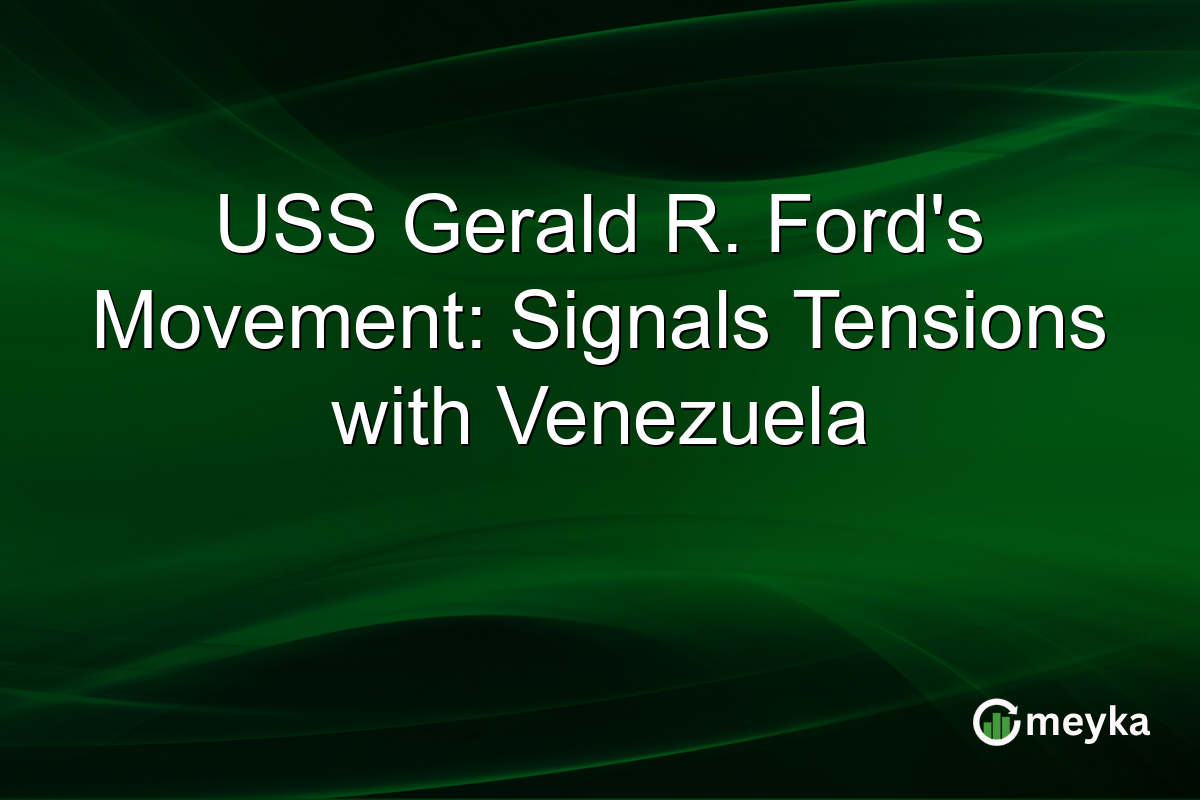USS Gerald R. Ford’s Movement: Signals Tensions with Venezuela
Recent developments in US-Venezuela relations have surfaced as the USS Gerald R. Ford moves closer to Venezuela. This shift signals heightened tensions in the Caribbean region. The USS Gravely has also docked in Trinidad and Tobago, indicating a strategic military presence. These moves underscore the United States’ vigilant focus on Venezuela’s ongoing political situation. Geopolitical dynamics are particularly crucial as regional stability can influence business and finance in neighboring countries.
Strategic Military Movements
The USS Gerald R. Ford is the US Navy’s largest and most advanced aircraft carrier. Its repositioning towards Venezuela is not a casual decision. Such movements are usually strategic and well-calculated. This closely follows the USS Gravely’s docking in Trinidad and Tobago.
These decisions suggest increased US military oversight over Venezuela. The Caribbean’s political climate can often impact trade and investments. This increased military presence may foreshadow potential interventions or escalate diplomatic engagements with Venezuela.
Impact on US-Venezuela Relations
This shift also affects US-Venezuela relations. Historically, the US and Venezuela have had rocky relations, with tensions often peaking over political disputes.
The current developments may impact diplomatic negotiations. Venezuela’s political stability is already fragile, and increased US pressure could impact regional allies.
According to Al Jazeera, regional allies are watching US moves carefully, gauging potential impacts on their own political stances.
Economic Implications for the Caribbean
The Caribbean, a region closely linked to both nations economically and politically, might feel the repercussions of these military movements. US naval actions near Venezuelan waters could deter business investments in the area.
Caribbean nations rely heavily on stability for tourism and trade. Any hint of instability can cause investors to hesitate. Business leaders are now considering potential risks tied to geopolitical strains caused by these developments. Regional markets may experience fluctuations based on how tensions develop.
Final Thoughts
Increased military activity in the Caribbean suggests significant geopolitical shifts. The USS Gerald R. Ford’s movement reflects growing US concern over Venezuela’s political direction. US-Venezuela relations remain tense, influencing economic and political decisions in the region.
Caribbean nations must now tread carefully amid these complexities, aware that these military actions could have wide-reaching impacts. Investors and policymakers should monitor these developments, as stability in the Caribbean is crucial for regional prosperity.
For those interested in real-time insights on geopolitical situations and financial impacts, platforms like Meyka offer valuable analytics and predictions to navigate such complexities effectively.
FAQs
The move signals increased US military focus on Venezuela’s political situation. It is likely a strategic decision to exert pressure and maintain oversight.
They escalate tensions and may influence diplomatic negotiations. Relations have been strained, and increased military presence can impact talks further.
Geopolitical tensions can deter investment, affecting tourism and trade. Caribbean countries may see economic fluctuations due to perceived instability.
Investors may adopt a cautious approach, closely monitoring political shifts. Stability concerns could influence investment decisions in the region. For real-time insights, Meyka provides valuable analytics on geopolitics and finance.
Disclaimer:
This is for information only, not financial advice. Always do your research.






